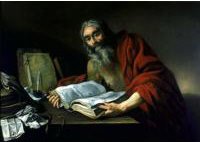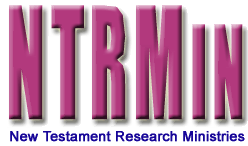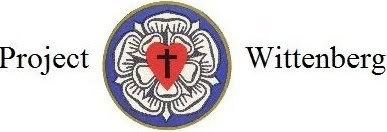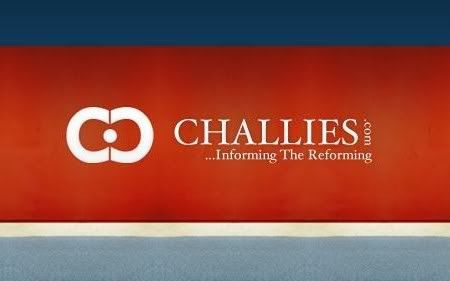 Jim Swan posted my "Did Jerome Change His Mind on the Apocrypha ?" over at his blog found here. It is a refutal of the Catholic apologists who attempt to recreate Jerome's stance on the Apocryphal books. Jerome is considered a Doctor of the Catholic Church. Throughout history, only a few have been given this title, so to have someone of his stature disagree with the added books of the LXX (Septuagint) is rather embarrassing to some. Give it a read. Hopefully, by God's grace, I did a half-decent job :-)
Jim Swan posted my "Did Jerome Change His Mind on the Apocrypha ?" over at his blog found here. It is a refutal of the Catholic apologists who attempt to recreate Jerome's stance on the Apocryphal books. Jerome is considered a Doctor of the Catholic Church. Throughout history, only a few have been given this title, so to have someone of his stature disagree with the added books of the LXX (Septuagint) is rather embarrassing to some. Give it a read. Hopefully, by God's grace, I did a half-decent job :-)
Wednesday, June 14, 2006
Meanwhile, over at Jim's blog...
 Jim Swan posted my "Did Jerome Change His Mind on the Apocrypha ?" over at his blog found here. It is a refutal of the Catholic apologists who attempt to recreate Jerome's stance on the Apocryphal books. Jerome is considered a Doctor of the Catholic Church. Throughout history, only a few have been given this title, so to have someone of his stature disagree with the added books of the LXX (Septuagint) is rather embarrassing to some. Give it a read. Hopefully, by God's grace, I did a half-decent job :-)
Jim Swan posted my "Did Jerome Change His Mind on the Apocrypha ?" over at his blog found here. It is a refutal of the Catholic apologists who attempt to recreate Jerome's stance on the Apocryphal books. Jerome is considered a Doctor of the Catholic Church. Throughout history, only a few have been given this title, so to have someone of his stature disagree with the added books of the LXX (Septuagint) is rather embarrassing to some. Give it a read. Hopefully, by God's grace, I did a half-decent job :-)
Subscribe to:
Post Comments (Atom)
































3 comments:
Great article. glad you did the work on it.
It sounds as if your friend minimalizes Jerome's positioning in history considering there were others which held the same view and were obviously influenced by Jerome. As opposed to Aquinas and his "skull and soul" theory which, obviously, didn't find many takers, Jerome's view was held by some of the most learned Biblical scholars. This is embarassing regardless of how your friend chooses to view it. I also find it pretty embarassing for Catholics that Aquinas could come up with some of the most cockamamie theories such as this one. It makes you wonder: What was the basis for this thought? And if he could ponder things as ridiculous as this, what does it say about other subjects he wrote about.
Peace,
Ray
Hi Cd,
No, as far as Jerome goes, I've only read his prefaces (to the Vulgate), this is where he states his view on the books of the Apocrypha, and I've read his dialogues with Augustine which are really interesting. I would like to eventually take the time to read him a bit more in-depth.
As with any church father, commentary, and Christian writers, past and present, I read them knowing these are fallible men who never intended their words to be perfect or common thought. These men didn't hold their writings above Scripture and subjected them to Scripture. We should too.
As for your second question, I am not aware of any Arian biblical scholars or if there were issues with the canon back then.
Purposely, I confined the issues regarding the Apocrypha between an orthodox Catholic (Jerome) vs. the majority view in the Catholic Church regarding these books. My only intent was to refute the thought that he changed his mind on them. As to the biblical scholars, I was specific regarding known Catholic scholars (Ximenes, Cajetan, and Seripando). I am not aware of any differences in the Arian canon or if one was even in existence. From what I do understand, church fathers, such as Augustine, held that the Trinity was not just evident, but could easily be derived from Scripture. He said:
"For we behold and see as it were in a divine spectacle exhibited to us, the notice of our God in Trinity, conveyed to us at the river Jordan. For when Jesus came and was baptized by John, the Lord by His servant (and this He did for an example of humility; for He showeth that in this same humility is righteousness fulfilled, when as John said to Him, 'I have need to be baptized of Thee, and comest Thou to me?' He answered, 'Suffer it to be so now, that all righteousness may be fulfilled'), when He was baptized then, the heavens were opened, and the Holy Spirit came down upon Him in the form of a Dove: and then a Voice from on high followed, 'This is My beloved Son, in whom I am well pleased.' Here then we have the Trinity in a certain sort distinguished. The Father in the Voice,-the Son in the Man,-the Holy Spirit in the Dove. It was only needful just to mention this, for most obvious is it to see. For the notice of the Trinity is here conveyed to us plainly and without leaving room for doubt or hesitation. For the Lord Christ Himself coming in the form of a servant to John, is doubtlessly the Son: for it cannot be said that it was the Father, or the Holy Spirit. 'Jesus,' it is said, 'cometh;' that is, the Son of God. And who hath any doubt about the Dove? or who saith, 'What is the Dove?' when the Gospel itself most plainly testifieth, 'The Holy Spirit descended upon Him in the form of a dove.' And in like manner as to that voice there can be no doubt that it is the Father's, when He saith, 'Thou art My Son.' Thus then we have the Trinity distinguished." (Sermons on Selected Lessons of the New Testament, 2:1)
Sorry I couldn't be of more help.
Peace,
Ray
Post a Comment